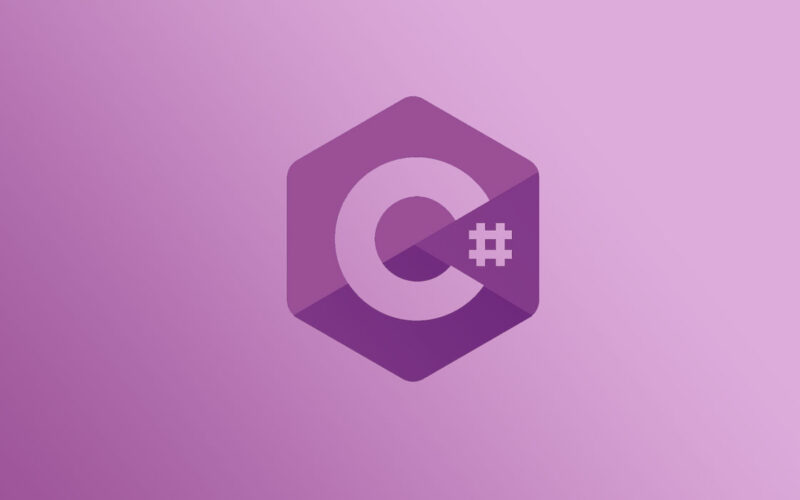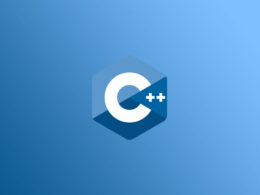C# in the Modern World: What is C# Used For?

In the symphony of modern programming, C# plays a pivotal role, striking harmonious chords across diverse applications. This versatile language commands an orchestra of possibilities, from the intricate web of web development to the pulse of powerful desktop applications.
At its core, C# is a maestro, conducting projects with prowess through the .NET framework and the object-oriented philosophy.
And as a passionate architect of virtual spaces, my journey with C# has unlocked doors—doors leading to the sleek design of mobile apps, and even the animated realms created in Unity for game aficionados.
In the subsequent discussion, expect to acquire insights into C#’s multifaceted utilities. From game development with Unity to robust web services via ASP.NET, grasp the essence of C# and why it’s an instrumental skill for crafting cutting-edge solutions.
This narrative shall elucidate C#’s instrumental role, ensuring that by the article’s end, its melody resonates with clarity and purpose in your own digital compositions.
What is C# Used For?
C# is primarily used for developing Windows applications, games using Unity, and enterprise-level web applications via the .NET framework. It’s valued for its robustness and versatility, supporting both object-oriented and functional programming. C# is also used in mobile development through Xamarin, enabling cross-platform solutions.
| Use Case | Features | Frameworks/Tools | Performance | Notable Implementations |
|---|---|---|---|---|
| Desktop Applications | Rich UI frameworks | WPF, WinForms | JIT compilation | Visual Studio, Paint.NET |
| Web Applications | Integrated with .NET | ASP.NET, Blazor | Optimized CLR | StackOverflow, GoDaddy |
| Game Development | High-level language features | Unity | High frame rates | Monument Valley, Hearthstone |
| Mobile Applications | Cross-platform development | Xamarin, MAUI | Native performance | Microsoft Office mobile apps |
| Enterprise Solutions | Scalability, Maintainability | .NET Core, Entity Framework | Enterprise level | ERP systems, CRMs |
Applications of C#
Ever caught yourself thinking, what is C# used for? Well, let’s dive into the world where C# isn’t just a letter and a symbol but a powerhouse in programming.
Desktop Application Development
You know those sleek, user-friendly desktop apps on Windows? That’s C# showing off.
It’s like the artist behind those intuitive GUI applications we all love. Ever heard of WinForms, WPF, or UWP?
These are the tools in the C# toolkit making those cool desktop apps a reality.
Now, let’s say you’re into creating something for the web, like dynamic websites or web apps.
C# steps in here too, with ASP.NET. It’s the behind-the-scenes maestro making web magic happen. And if you’re building web services and APIs, C# is your go-to. It’s like having a Swiss Army knife for web development.
Game Development
Here’s where it gets really exciting. Ever played a game developed in Unity? C# is the star there.
It’s big in both indie and mainstream game development. We’re talking about creating immersive game worlds and jaw-dropping gameplay, all thanks to C#.
Mobile and Cloud-Based Services
C# isn’t just about sitting at a desk. It’s mobile too. With tools like Xamarin and MAUI, C# leaps into the world of mobile app development.
It’s like having the power to create apps for iOS and Android, all in one language. And cloud solutions? Azure loves C#, making it a dynamic duo for cloud services.
Enterprise and Business Solutions
Here’s where C# shows its serious side. In enterprise software development, C# is like the reliable, smart colleague everyone wants on their team.
Workflow and task automation? C# handles that with ease, turning complex processes into smooth, automated tasks.
Advantages of Using C#

When we peel back the layers of the programming world, what is C# used for? becomes a question with some pretty cool answers.
It’s like finding out your regular toolbox can actually do magic. Let’s dive into why C# is more than just another programming language.
Efficiency and Productivity
C# is like the express train in the world of coding. It’s packed with time-saving features and extensive libraries.
Imagine having a magic wand that writes half of your code for you – that’s what it feels like with C#.
Then there’s static typing. It might sound a bit geeky, but it’s a lifesaver. It reduces errors and speeds up development.
It’s like having an invisible proofreader checking your work as you type.
Ease of Learning and Use
If you’re thinking of diving into coding, C# is like the friendly neighbor who helps you out.
It has a low learning curve, especially if you’re already buddies with C-like languages. Plus, its syntax is super intuitive. Think of it like learning a new language that feels strangely familiar.
And the community support? It’s massive. It’s like walking into a room full of friends ready to help you out with any coding puzzle.
Scalability and Maintenance
C# isn’t just for small projects. It’s perfect for the big league too. When it comes to maintaining C# programs, it’s a breeze.
You won’t find yourself tangled in a web of code. And for large-scale applications, it’s like having a sturdy foundation for building a skyscraper.
Industry Adoption and Popularity
Okay, so we’ve been talking about what is C# used for, right? But here’s the real deal: it’s not just what it’s used for, it’s also who’s using it.
C# isn’t just playing in the minor leagues; it’s a major player in the industry.
Corporate Use
First off, big names love C#. We’re talking heavy hitters like Microsoft, obviously, because they made it. But it’s not just them.
Stack Overflow, Trustpilot — these tech giants are using C# to build robust, efficient applications. It’s like finding out your favorite artists all use the same brand of paint.
Now, think about different industries — finance, healthcare, retail. C# is everywhere, building powerful, secure applications.
It’s like the universal language spoken across corporate worlds.
Community and Market Presence
C# isn’t just about the corporate bigwigs. It’s got a community vibe that’s hard to beat. Think of it as a city where everyone speaks the language of C#.
There are tons of forums, blogs, and groups where C# programmers hang out, share tips, and help each other out. It’s like having a 24/7 coding support group.
And in the world of programming languages, C# is like one of the popular kids.
It consistently ranks high among the most-used and most-loved languages. That’s saying something, considering how many programming languages are out there!
Limitations and Considerations
Alright, so we’ve been chatting about what is C# used for, and it’s been pretty impressive, right? But let’s be real for a sec.
No language is perfect, and C# has its own set of limitations and things to ponder. It’s like having a super cool sports car but knowing it might not be the best for off-road trips.
Scope of Use
So, here’s the thing. C#?
It’s amazing for a bunch of stuff. But when it comes to really low-level programming tasks — like messing directly with hardware or system-level programming — it might not be your first pick.
It’s like you wouldn’t use a fancy pen to hammer a nail. There are other languages that love getting their hands dirty with that kind of stuff.
And then, there’s the platform-specific angle. If you’re all about Linux or Mac, you might need to pause and think.
Sure, with .NET Core, things got better for cross-platform development, but it’s still primarily a Windows darling. It’s like having a favorite cafe, but it’s only in your neighborhood.
Considerations for Platform-Specific Applications
If you’re planning to build something that’s super specific to a platform, like a native Mac app, C# might not be your go-to guy.
It’s more of a universal player, not the specialist in platform-specific quirks. It’s like, you wouldn’t use a Swiss Army knife to perform a specialized surgical procedure, right?
FAQ On What C# Is Used For
Is C# Only Used for Windows Applications?
Absolutely not. C# is a virtuoso, transcending beyond Windows applications. Its versatility extends to creating sophisticated web apps with ASP.NET, dynamic mobile apps using Xamarin, and even immersive games via Unity.
It’s an everywhere language, making it an industry staple for cross-platform development.
What Kinds of Software Can Be Developed with C#?
The spectrum of C# applications spans a vast expanse. Picture a landscape where desktop software, web platforms on .NET, mobile apps, and even cloud services harmonize. Games, too, envision their digital existence through Unity and C#, making it a kaleidoscope of programming potential.
How Does C# Fare in Game Development?
C# shines in the gaming arena, especially paired with Unity. It scripts the magic behind player movements, environmental interactions, and real-time game mechanics. Its ability to engage with robust game engines places it at the core of both indie and AAA gaming projects.
Can C# Be Used for Mobile App Development?
Yes, and quite effectively. Xamarin, a beacon of mobile app development with C#, seamlessly translates C# code into native app experiences. Tailoring apps for both Android and iOS platforms becomes an actuality, ensuring a cohesive user experience across myriad devices.
How Integral Is C# in Web Development?
In the web’s grand tapestry, C# interweaves itself through ASP.NET, enabling the creation of modern, responsive web applications. It’s at the heart of dynamic websites, APIs, and online services, rendering it a key player in server-side programming.
Is C# Suitable for Beginners in Programming?
Despite its profound capabilities, C# embraces the beginner. Its syntax is intuitive, resembling the clarity of the English language. This, coupled with Microsoft’s extensive documentation and educational resources like MSDN, makes C# a welcoming first step into the coding universe.
How Does C# Interact with Databases?
C# demonstrates eloquence in database conversation, leveraging Entity Framework to ease communications. It stands as a bridge, translating object-oriented code to SQL for database management with grace, allowing for seamless data manipulation and retrieval in applications.
What Makes C# Different from Other Programming Languages?
C#’s distinction lies in its symbiotic relationship with the .NET framework, fostering a comprehensive ecosystem for developers.
Its object-oriented characteristics and seamless interplay with Windows environments afford a unique proposition. Yet, it also adapts, presenting a cross-platform prowess that’s rather captivating.
What Is the Future of C#?
The future of C# is as dynamic as its current ecosystem. With .NET Core’s evolution, C# is set to further its reach, breaking new grounds in cross-platform, cloud-based, and IoT applications. Its continuous updates and expansive community forecast a resilient and innovative trajectory.
How Is C# Evolving with Current Tech Trends?
Keeping stride with technological sprints, C# evolves, embracing cloud computing, microservices, and machine learning through .NET advancements.
As tech tendrils stretch towards AI and sophisticated analytics, C# is there, ensuring its syntax and libraries meet modern-day demands and beyond.
Conclusion
Where does the tale end for C#, for that’s the inquiry at hand? It doesn’t. It spins onward, a tale with chapters unwritten, potential unleashed across technologies and industries. Now armed with knowledge, the reality of what C# is used for melds clearly:
- Towering web developments underlined by ASP.NET
- Mobile ecosystems flourishing through Xamarin’s versatility
- Gaming adventures birthed in Unity’s realm
Holding fast to tools like Entity Framework and Visual Studio, C# has showcased its elasticity, proving to be a foundational skill—a digital lingua franca for creators, developers, and beyond.
The curtain draws slowly, the audience still buzzing with anticipation for the orchestra of code to play on. Gaze into the landscape of software development; it’s vividly painted with the brushstrokes of C#. Embrace the language that’s both a beginning and a voyage, and let your creations bask in its expressive power.
- Understanding JavaScript Loops: A Beginner’s Guide - May 16, 2024
- Trending CSS-in-JS Libraries for Developers - May 16, 2024
- Integrating External JavaScript for Enhanced Functionality - May 15, 2024








